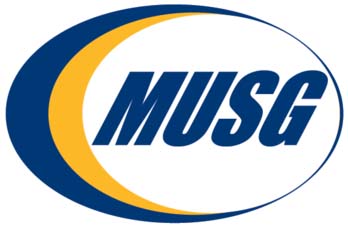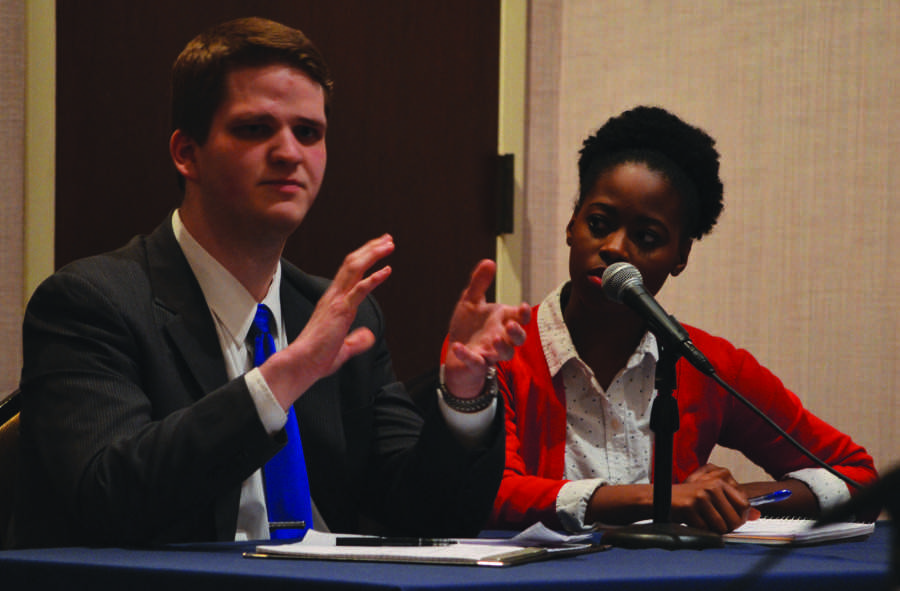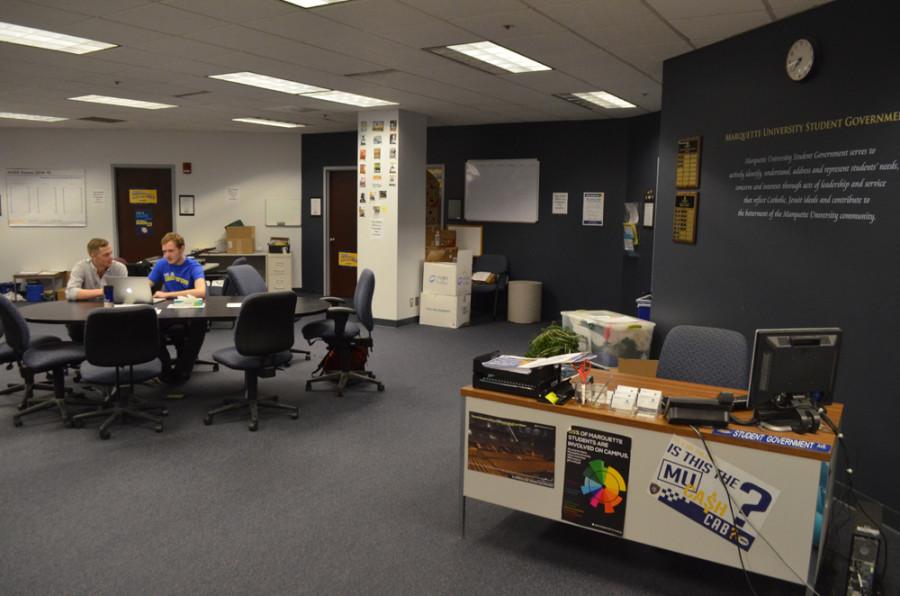After going nearly $30,000 over budget last year, the Student Organization Funding process is being reviewed by students in the Lean Six Sigma business class.
There were less successful attempts to reevaluate the SOF process in prior years. Marquette Student Government is now using external groups in an attempt to simplify the process.
This external SOF review is being done by Nathan Bowen, a senior in the College of Engineering, and Connor Clancy, a junior in the College of Business Administration.
At the Sept. 29 MUSG Senate meeting, Clancy explained that their goal is to improve the SOF process and present their findings to MUSG by the end of the semester when their business class finishes.
“Our purpose is to create an objective process to accurately allocate student organization funding,” Clancy said.
Bowen said they are using business theories that the class focuses on. Lean and Six Sigma are strategies for organizational change. The Lean process is focused on reducing waste while the Six Sigma process is intended to reduce variance in the process.
Bowen said in an email that the team identifies two major problems with the SOF process, one being a lack of allocation approval standards.
“The SOF committee has expressed interest in creating more objective standards by which student organizations can be approved for funding for their events,” Bowen said.
There is also the intention, Clancy said, to improve the process through which student organizations receive reimbursements.
“Students have up to 30 days to submit their reimbursement forms,” Clancy said. “And then have 30 days after that once their check is delivered to the MUSG office to pick up. So in theory, they have a little over 60 days to collect their money after an event.”
Clancy mentioned other goals including increasing the number of student organization applications and formally receiving feedback from those groups.
“We think the best way to realize you have a problem with your process is to have students tell you themselves,” Clancy said.
MUSG president Kyle Whelton, a senior in the College of Arts & Sciences, explained that the Lean Six Sigma class are essentially working as consultants for MUSG.
“An important thing to remember is that MUSG has full autonomy in this,” Whelton said. “The Senate has to approve it and I have to sign it. We brought (Clancy and Bowen) in because they have the experience in how to do it.”
The duo is using the define, measure, analyze, improve and control method, Bowen said in an email.
“In the Define stage, we outlined the problems we intend to address and made success criteria for our project,” Bowen said. “We are currently wrapping up the measure stage. In this step, we have created a detailed Process Map of the SOF operations and are using historical data to identify trends and areas for improvement.”
Clancy said he and Bowen are the only two students working on improving the SOF process. The other Lean Six Sigma students are working on their own class projects across campus.






